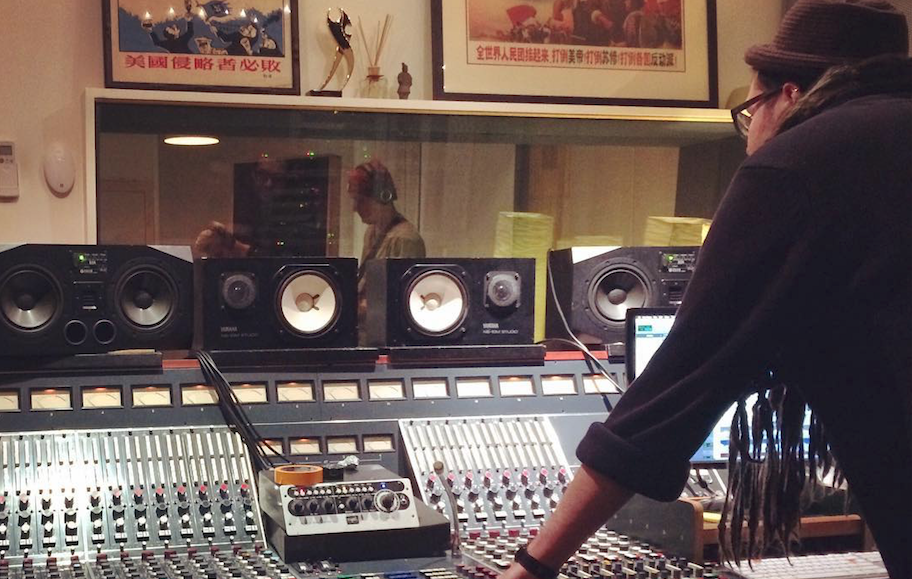“We just gradually felt more and more silly about it”: Homesurgery Recordings’ Tom Larkin explains why a name change is exactly what the studio needed for it’s tenth anniversary

This year not only marks the ten-year anniversary of Melbourne recording space The Studio’s In The City, but also sees the studio official launch under the new name of Homesurgery Recordings next week.
Located in the iconic suburb of Brunswick – which, according to APRA, is home to the highest concentration of songwriters in the Southern Hemisphere – the recording studio has been responsible for hosting bands such as Calling All Cars, The Getaway Plan and Northeast Party House, as well as producers Matt Lovell, Jaz Coleman and James Lewis.
While he joked about the Google image search results associated with the name change (“we’re trying to bring culture and refinement to something hideously ugly”), the studio’s owner-operator Tom Larkin explained to TMN that adopting the Homesurgery name marks an important point in the site’s history.
What does the name change offer the studio after 10 years?
Well, I think there’s two things. The name of the studio was thrown around as a bit of a joke, and it was one of those things where you just, for lack of having a strong idea, we threw it on there. Then, we wrapped the business around it.
Parallel to that, I started a management company called Homesurgery. After a while, people seemed to call the studio “The Homesurgery Studios”. Because, there was a lot of alignments between some of the acts that we recorded and managed.
The thing that we looked at, was that I moved my management company into partnership this year, and so we’re no longer under that banner. Then, we looked at the fact that we’ve done 10 years, and it was really crystallising the evolution of what the studio has become. Because it’s in Brunswick, which is one of the biggest creative hubs in all of Australia.
There were two principles behind it. One was, that of course, it was designed to be comfortable. It was designed to be a place that didn’t feel clinical, that didn’t feel uptight. It had that ramshackle and put-together edge, where it’s been built upon itself several times over. But, it’s warm, and it’s vibrant, and it’s a beautiful place to spend your time.
But, at the same time, there’s a lot of commitment to delivering something that sounds fantastic, and the detail, and duty of care that’s involved in that. The idea of actually “home surgery”, fit better with the studio ethos – even better than the management ethos. We just thought this is the perfect time to reflect what we’re about, and reflect what the history of the place is, and move on with that, because that’s what the place is.
The name itself embraces exactly what we’re about. The Studio In The City increasingly didn’t sit right. It’s, like, a fucking stupid name… It felt long, it felt convoluted, and it didn’t crystallise anything that we were doing. It wasn’t even seriously in the city.
We just gradually felt more and more silly about it, and it just had that feel of that ethos of Homesurgery, which is the name we came up with, works really well.
Do you think coming from the artist side of things first helps you have a better understanding of what artists need when it comes to a studio?
Absolutely. First of all, the first pitch rule of any great producer is, the ability to have empathy, and to put yourself in the position of the artist. It’s no secret that in order to get a great recording, or a great piece of art to connect through the medium of speakers and audio, the primary instrument is actually the artists themselves.
Being able to be in that position, having gone through really negative situations in the studio, but also really positive ones, allowed me to reverse engineer what it is that makes a great performance come to an artist. How to direct the artist towards that position, and to support them.
The typical side of recording… it’s a creative medium, but it’s also not the most important thing. The most important thing is the delivery that the artist brings to the table.
What’s one of the stories that has come through the studio that you’re most proud of?
Often times, we record bands that you may not have heard of, or you may never hear of. But they turn up to work in that environment, to make something that they’re proud of. And so every time we deliver that, I’m stoked.
You see it in people’s eyes when they listen to something that’s finished and mixed… you see their pleasure in hearing it well-presented, and hearing it, perhaps at times, beyond what they’d imagined they could do. That is, for me, is the thing I take away from it.
The pleasure I get, is in delivering great work. It doesn’t matter the profile of the act.

































